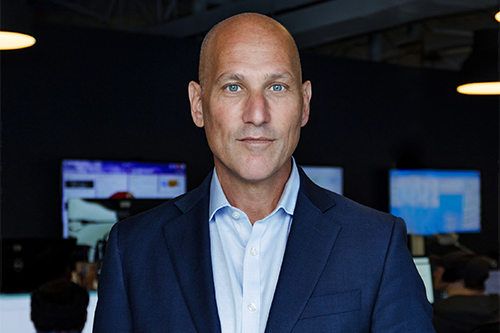

Andrew Robinson (pictured) is no stranger to leadership. He’s a highly experienced and successful global insurance executive with a 30+ year track record of growth, financial improvement and strategic and operational leadership with some of the world’s most premier insurance firms. And yet, it was some candid advice from his two children – aged 22 and 25 – that got Robinson prepared to take over as CEO of Houston International Insurance Group, Ltd. (HIIG) smack bang in the middle of a global pandemic.
“They’re very much creatures of their generation,” said Robinson. “They’re both in the workforce, and they’ve given me a lot of fascinating input [about how to communicate with and engage employees during the pandemic], which I’ve listened to.”
Robinson became CEO of Houston-based HIIG – an insurance holding company with underwriting segments focused on accident & health, commercial, excess & surplus lines and specialty – in May 2020. He succeeded HIIG’s founder and outgoing CEO, Stephen L. Way, who has resigned as chairman of the board but will continue to serve as a director of the company.
He joined the company from private equity firm Oak HC/FT, where he most recently served as executive in residence and senior advisor, with a focus on fintech and insurance technology. Before that, he had a short stint as global chief operating officer and executive vice-president at Crawford & Co., a decade-long tenure with The Hanover Insurance Group, where he was president of specialty insurance, executive vice president of corporate development and chief risk officer, and was managing partner of global insurance at Diamond (now PWC) Consulting.
While his impressive leadership résumé certainly helped Robinson transition into his new position at HIIG during COVID-19, he admits there was a lot to learn … and quickly.
He told Insurance Business: “I quickly learned that I needed to find really meaningful ways to engage with our staff. The day before I joined, I had a video call with our extended leadership team, and then I had a call with all employees on my first day, which set the tone of how I wanted to move forward. I’ve basically created a whole bunch of different means through which I can connect with employees and communicate. For example, we have an ‘all employee’ channel, which allows me to blog as I’m doing interesting things during my first weeks as CEO. I’ve also set up virtual open office hours, which is an open hour session for all employees, which I try to do weekly.
“In my first three weeks, I did two-hour deep dives into every one of our businesses, and I blogged my findings out to the company, sharing something simple like: ‘Hi everyone, I just did a business review with [x]. Here are three things I learned.’ And the response was very positive because colleagues in other divisions don’t always get that kind of exposure. Other things that I’m planning include a series of virtual events around who we are as a company, focused on our mission, vision and values. For example, as the Black Lives Matter movement started becoming more prevalent, I communicated early with our employees about that, which was really helpful in setting the tone for who we are as a company under my guidance.”
Read more: AIG moves for top Lloyd's of London figure
A lot of the things Robinson has done so far to engage with HIIG employees through the pandemic are things he admits he “may not have done (or at least not in the same way)” if it weren’t for the public health crisis. He probably would have relied on more traditional means to connect with employees – including physical travel – which he said: “would have been much less frequent and probably much less impactful in terms of the quality of the communication.”
“I’ve learned a lot and I feel really good about it,” he added. “The feedback that employees are providing indicates that they feel really engaged and feel like the company is engaged with them, which is super positive. With employees working remotely [connecting virtually], the communication becomes much more continuous and much more real-time. I think those are really great benefits, so I’m pushing myself to do these things, and I’m really enjoying it. It’s a lot of fun because it feels a lot different than how traditional communication has worked.”
